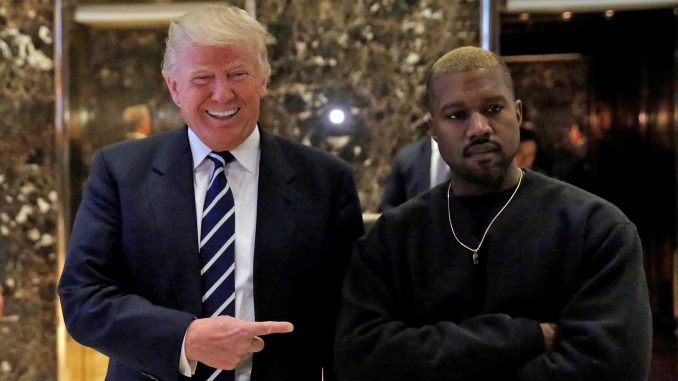
David Anderson, Staff Writer |
Two days prior to the inauguration, Tom Barrack, Donald Trump’s chairman of the Presidential Inaugural Committee, cited traditional American values as his reasoning for excluding Kanye West from the inauguration concert. The branding of a Chicago native, performing a style of music originating in New York City roughly forty years ago as being something other than American seems, at first glance, to be an infuriatingly contradictory phrase but nonetheless one that pales in comparison in terms of relevance to the civil upheaval as of late. However, this branding offers a brief return to the more subtle and more insidious exclusion of black artists who highlight social ills. Naturally, one can’t attribute West’s exclusion to simple racism as doing so would discount the performances of Chrisette Michele, Sam More, Travis Greene and others. However, these artists performed in a generally standard white dialect and in most cases, had some sort of religious or patriotic element to their music, elements which West actively attacks.
Chrisette Michele performed Travis Greene’s gospel song “Intentional” at the inauguration, an old-school style reassurance that God knows what he is doing so we shouldn’t fret. While not performed at the inauguration, Michele also has a song “Let Freedom Reign” which similarly touches upon religious aspects but also adds in elements of colorblindness and patriotism. While her and her featured artists are scathing in critiquing the harder parts of our country’s history “the constitution said I’m three fifths/I’m not a semi and gorilla” the song is also peppered with religious, patriotic, and colorblind elements. The aforementioned feature, Talib Kweli, goes on to rap “my rhymes bridge the gap between religion and science/cause my evidence is spiritual” and Michele reminds us all that “Freedom isn’t free it’s earned.” These two lines alone speak to Trump’s America First rhetoric and the evangelical values of a large portion of his supporters. Furthermore, Michele goes on to discuss a certain colorblindness, and putting behind the racism of the past, continuing “Freedom isn’t free it’s earned/Not, no, it’s learned/been hung and burned/Yet rest in peace, resurrected plea/This ain’t black or white, it’s grey.” Michele is urging her listeners to acknowledge the past but to do away with contemporary concepts of blackness and whiteness. Again, these are themes central to the nativist, Christian mass that helped elect our current President and who fear a “war on Christmas” and white genocide.
Mr. West totes no such ideologies, critiquing Christianity and contemporary racism, adding no such elements of patriotic appeasement as Michele does. In Black Skinhead, West laments that “If I don’t get ran out by Catholics/Here come some conservative Baptists/Claiming I’m overreacting.” Earlier in the piece, West warns the black community “But watch who you bring home/They see a black man with a white woman/at the top floor they gone come to kill King Kong.” These criticisms of still prevalent stigmas and the middle class white outrage at these criticisms, does not jive with the colorblind and faith-based music of Chrisette Michele, a clash that would most likely alienate the inauguration crowd.
Ultimately, it is not West’s exclusion but his being branded as un-American that is troublesome. Barrack could have cited West’s personality or rumors of his declining mental health and onstage rants as reasons for leaving him out of the party, but he specifically chose to state that there is an American tradition, and West is not part of it. Not because he is black, but because he advocates for blacks. The left has spent the election cycle and the first few days of the presidency begging the world not to normalize Trump’s rhetoric. However, it is these statements by Barrack, which in so few words, rips the citizenship from a man who makes anti-racism part of his art, that have always been normal and will continue to be normal unless examined.
Leave a Reply